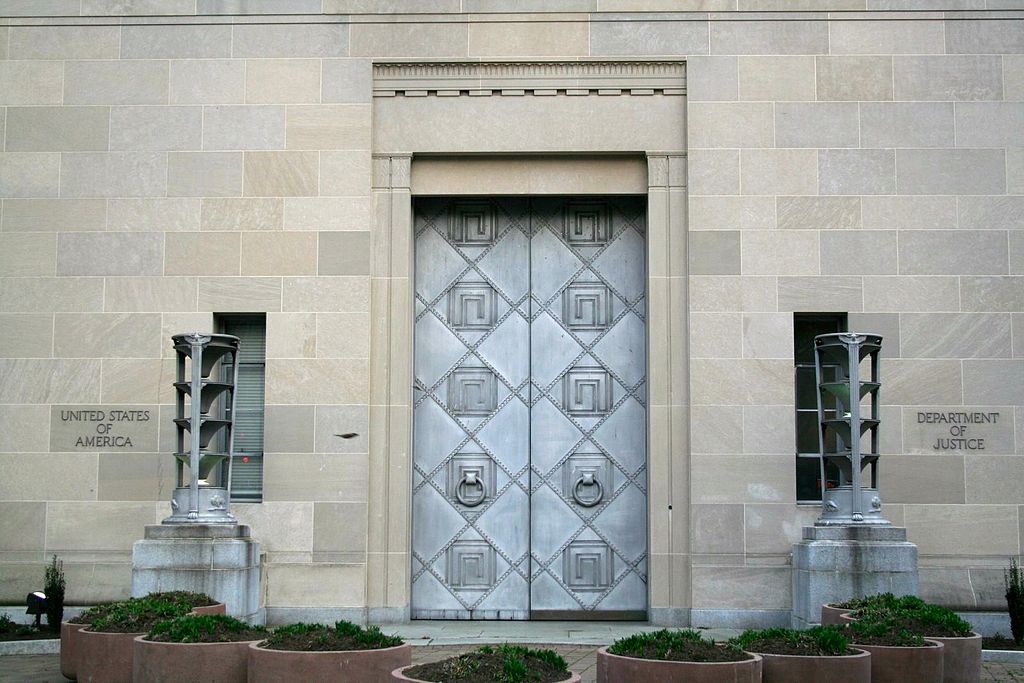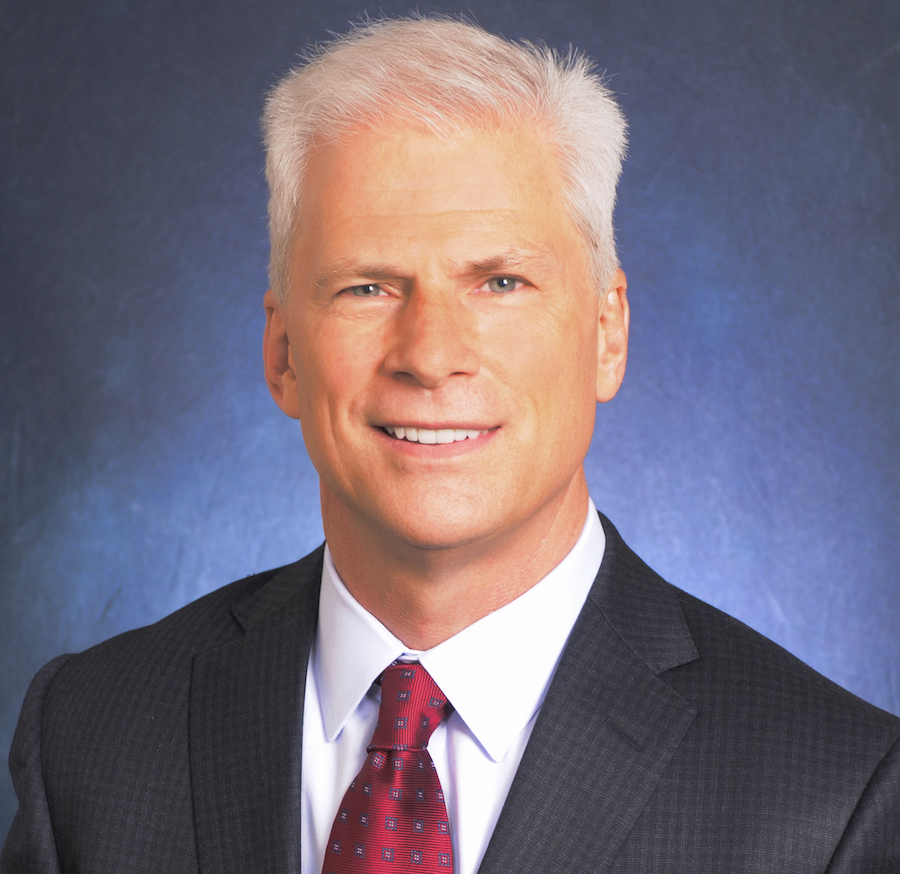Expect Special Counsel Mueller to Follow the Money
“Follow the money.” Mark Felt, the deceased FBI executive who was Watergate’s “Deep Throat,” may not have actually whispered those words to reporter Bob Woodward. But they reflect a practice federal agents and prosecutors heed in criminal investigations as varied as drug dealing and terrorism to cyber intrusion and political corruption.

Published by The Lawfare Institute
in Cooperation With

“Follow the money.” Mark Felt, the deceased FBI executive who was Watergate’s “Deep Throat,” may not have actually whispered those words to reporter Bob Woodward. But they reflect a practice federal agents and prosecutors heed in criminal investigations as varied as drug dealing and terrorism to cyber intrusion and political corruption.
No one should be surprised that Special Counsel Robert Mueller is reportedly looking into the finances of President Donald Trump and his associates. But in July the president warned that Mueller would be exceeding his mandate if he sought information on the Trump family’s finances unrelated to Russia. And now Rep. Ron DeSantis has filed a proposed amendment to a House spending bill to prevent Mueller from investigating matters that occurred before June 2015, when Trump announced his presidential run.
The president not only seems to misread the broad mandate that Mueller was given by the Justice Department, but the positions that he and DeSantis have taken suggest they are also unfamiliar with how investigations like Mueller’s work. Finances that are not on their face related to Russia could nonetheless prove relevant to the Russia investigation. And the contrived date restriction that DeSantis proposes would improperly inhibit investigators, prosecutors and ultimately the grand jury. For example, seemingly unrelated financial matters that predate events central to the investigation could show a pattern of behavior related to the issue in question or a state of financial distress that could speak to motive.
In this post, as a former U.S. attorney who has led numerous investigations in which financial evidence established key elements for conviction of serious crimes, I offer a brief explanation of why the special counsel is right to probe the finances of the subjects of his Russia investigation and why he surely will ignore the president's warning if the evidence leads him there.
I oversaw many cases in which a suspect’s personal finances were often intimately linked to whatever wrongdoing that person had engaged in. The finances either created a motive (naked greed, for example), contained evidence or fruits of the illegal scheme itself, or provided evidence of how the scheme was concealed. For example, in one conspiracy case prosecuted by my office, we established the complicity of Russian hackers by examining related financial crimes and connecting complex schemes involving the transfer of funds to the conspirators. Similar evidence of financial transactions can establish overt acts proving the conspiracy or can connect the alleged conspirator with the crime, whether or not the crime itself is financial in nature. In fact, ignoring such evidence would severely hamstring most federal criminal investigations.
It is hard to imagine how payments by foreign governments, including Russia, would not be central to Mueller’s investigation, given what is already known. To start, Donald Trump, Jr. admitted at a real estate conference in 2008 that “Russians make up a pretty disproportionate cross-section of a lot of our assets; say in Dubai, and certainly with our project in SoHo and anywhere in New York. We see a lot of money pouring in from Russia.” As Reuters reported in March, wealthy Russians invested nearly $100 million in revenue to several of Trump’s properties in Florida and New York in recent years. And beyond Russian money flowing to Trump properties in the United States, Donald Trump had tried to develop properties in Russia since the 1980s. In 2007 he declared, “We will be in Moscow at some point,” and in 2013 his hosting of the Miss Universe pageant in Russia was financed by Aras Agalarov, an oligarch who is close to Russian President Vladimir Putin. Agalarov later worked with Trump on plans to build a Trump Tower in Moscow, though the deal fell apart. Late last month, the Washington Post reported on emails that revealed that Trump’s personal lawyer, Michael Cohen, played a role in that deal, working to connect the Trump Organization with a spokesperson for Putin to help finalize it. Agalarov’s son also reportedly sought to arrange the now-infamous meeting between Trump Jr. and the Kremlin-connected lawyer Natalia Veselnitskaya.
These financial relationships are relevant to the Russia investigation because they may speak to Trump or his associates’ motive or opportunity to collude, or else provide evidence of collusion. Recently these facts were recounted as part of a civil lawsuit filed against the Trump campaign by three voters whose private information was exposed to the world as part of the Russians’ hack of the Democratic National Committee. Discovery will likely be allowed in that case. Surely the special counsel must look into these issues as well.
Deputy Attorney General Rod Rosenstein granted Mueller a broad mandate to probe financial records when he authorized an investigation into “any links … between the Russian government and individuals associated with the campaign of President Donald Trump” (emphasis added). There is ample reason for Mueller to believe based simply on information in the public sphere that there are financial links between Trump and Russians close to the Russian government. The only way he would be able to tell if any of these financial links connect Trump to the Russian government for purposes of influence operations is to investigate them.
Given that investigating Trump’s finances is within Mueller’s mandate, the president's warning that Mueller not look at Trump family finances beyond any relationship to Russia is highly inappropriate. My bosses at the Department of Justice once tried to interfere in an election-related investigation within my purview. In 2006, I was fired along with eight other U.S. attorneys for what many believe was an attempt to politicize criminal investigations and install political loyalists to oversee important federal investigations. The investigation report issued by the Justice Department’s Office of the Inspector General and Office of Professional Responsibility concluded that “the Department failed to ensure that the removals were not undertaken for an improper political purpose” and that several department officials’ assertion that the removals were performance-based “was inaccurate and misleading with regard to several of the U.S. Attorneys.”
In my view, we were fired because we chose loyalty to the law and our oaths to the Constitution over loyalty to the president and his political party. The scandal that flowed from that moment rocked the country and resulted in the resignation of top Justice Department officials, including the attorney general, Alberto Gonzales.
Bob Mueller, who served as FBI director under Presidents George W. Bush and Barack Obama, doesn’t need anyone’s advice on how to investigate and prosecute cases. His experience and integrity speak for themselves to anyone but the willfully ignorant or those who have little regard for the truth. Whether ignorance, disregard for the rule of law or something else explains the antipathy of the White House and others, Mueller deserves and may require the active support of Congress—and perhaps eventually the judiciary, if we want the truth.




